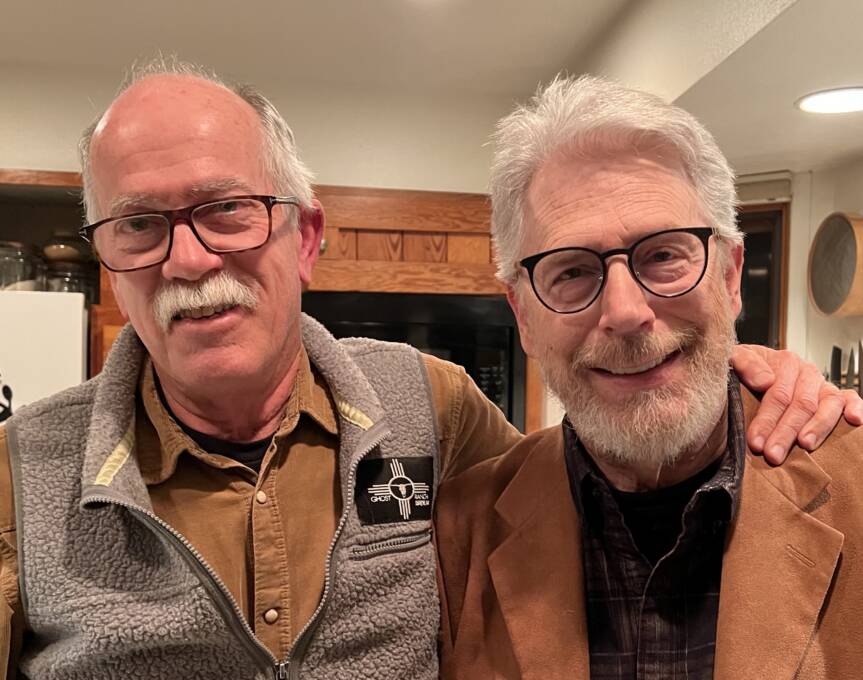Are You Kind?
by Jim Burklo | 18 March 2024
About this time every spring, for many years, I took students down to the Arizona/Mexico border for a week. We put water jugs on the desert trails where migrants cross into the United States. And we visited with border justice activists.
We always spent an afternoon at the United States courthouse in Tucson, where Operation Streamline was conducted. It was mass-production justice. Busloads of migrants apprehended by the Border Patrol would be driven to the courthouse, given perfunctory interviews with lawyers, and then would be paraded into the courtroom to plead on the charge of illegal entry into the US. About 60 migrants at a time would go through this process. They were wearing the scruffy clothes they wore when they crossed the desert. They were awkwardly holding up their pants with their shackled hands because their belts had been removed due to security concerns. Their faces told their stories: hopes dashed, money wasted on “pollero” smugglers, families disappointed. One by one, before the judge on the high dais, they would plead “culpable” – “guilty.” And then be marched out to be deported back over the border.
Every time, my students wept at this sorry spectacle. And so did I.
The Operation Streamline system was merciless and dark, but every time I sat through it over the years, I witnessed glimmers of light. I remember one judge in particular showing remarkable deference toward the migrants, overtly sympathizing with their plight, explaining the legal process carefully in easy-to-understand language that I hoped was translated well to them. The defense lawyers assigned to the migrants were paid on a per-diem basis at a low rate, and it was obvious that they were at the bottom of the barrel of the Tucson legal community. But there were exceptions. One lawyer put her hand on the shoulder of each of her migrant clients as they were ushered out of the courtroom, looked them in the eyes, and in Spanish, wished them well. I can’t know the impact that these very intentional gestures had on the migrants, but it certainly left me with a lasting impression that can be summed up in Jewel’s lyrics: “In the end, only kindness matters….”
The question before me and my students, every time, was this: how do we blow on these embers of kindness glowing in the darkness of our broken immigration system, until they burst into flame and melt it down and recast it into a border policy that is kind?
Think this through with me, let me know your mind
Whoa-oh, what I want to know is, are you kind?
Those are lyrics from a Grateful Dead song. (Yes, it’s true, folks – I’m a Deadhead, from way back.) How about some basic, good ol’ fashioned kindness, eh? Is it too much to ask of ourselves and others? Is it too much to ask of society as a whole – to set things up systematically so that kindness prevails?
We need kinder immigration laws, offering mercy for the 10 to 20 million people who came into our country without papers, but have been here so long that deporting them would be incredibly cruel. Kindness should inspire us to give them green cards and a pathway to citizenship. Of course we should have a secure border and an orderly process for immigration and for granting asylum to endangered refugees. Kindness should inspire us to temper our need for control of immigration with mercy for the most vulnerable.
Whoa-oh, what I want to know is, are you kind?
Are you patient, present, attentive to the inner needs and yearnings of others? Willing to enter into the experience of others, on their terms, letting your opinions and judgments get out of the way?
Kindness really isn’t too much to ask. It doesn’t demand that we be effusive and gushy and mushy. Kindness is simple. Kindness is love without the roses and chocolates. Kindness is compassion without chrome plating. It doesn’t demand that we be best pals with people who behave obnoxiously – just that we take a deep breath and respond as kindly as we can. Kindness moves us to greet the unhoused person you see on the street with a smile and a good wish. It does not require you to pack the person into your car and move them into your house. Kindness is a do-able expression of love. And it’s in short enough supply that just a little of it can go a long way.
“In the end, only kindness matters….” A mantra worth repeating. So many ways we can exercise kindness in our day-to-day lives, with the people around us. And with our votes, and with our advocacy and activism, we can make kindness systematic, as well….
 Jim Burklo is an ordained pastor in the United Church of Christ, Executive Director of Progressive Christians Uniting, and a long-time friend of AT editor Loren Seibold.
Jim Burklo is an ordained pastor in the United Church of Christ, Executive Director of Progressive Christians Uniting, and a long-time friend of AT editor Loren Seibold.





